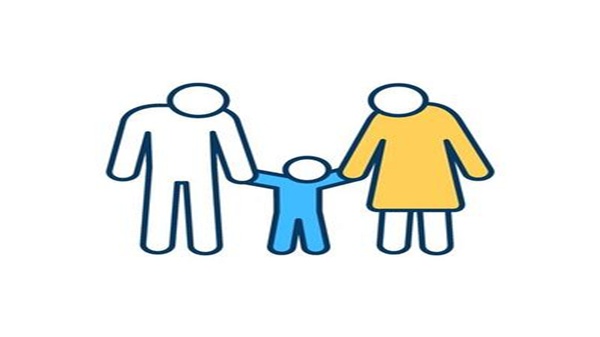Nuclear Family
Nuclear Family [350 Words]
A nuclear family is a small and compact family unit that usually consists of parents and their children living together under one roof. This type of family is quite common in modern societies, especially in urban areas, where people prefer a simple and independent lifestyle. The nuclear family is different from a joint family, as it excludes other relatives such as grandparents, uncles, aunts, and cousins. One of the main advantages of a nuclear family is the strong bond and close relationship between parents and children. Parents can give more attention to their children, guide them in education, and fulfill their emotional needs more effectively. It also provides privacy and personal freedom for each family member, allowing them to make decisions without much interference from extended relatives. Moreover, the nuclear family is easier to manage financially, as expenses are limited to fewer members. However, it also has some disadvantages. In times of crisis, such as illness or financial difficulties, nuclear families may not receive immediate support from relatives. Children may also miss the warmth, care, and cultural values that are often passed down in joint families. Furthermore, working parents in a nuclear family sometimes face challenges in balancing their jobs and household responsibilities, which may lead to stress. Despite these drawbacks, the nuclear family plays a significant role in shaping responsible and independent individuals. It encourages self-reliance, decision-making skills, and a sense of responsibility among its members. In today’s fast-paced world, many people choose nuclear families because they provide more privacy, comfort, and opportunities for personal growth. While the structure of families may vary from culture to culture, the nuclear family remains one of the most common and influential forms of family life in the modern era. It is a blend of love, care, and mutual support within a small, closely-knit circle that forms the foundation of society.
or, [250 Words]
A nuclear family is a small family unit consisting of parents and their children living together in the same household. It is considered one of the most common and traditional family structures in many parts of the world. In a nuclear family, the parents are primarily responsible for raising and guiding their children, ensuring their education, health, and moral development. This type of family offers a close and intimate relationship among its members, as they share daily experiences, responsibilities, and emotional support. One of the main advantages of a nuclear family is that decisions can be made quickly and efficiently, as there are fewer people involved. It also helps create a strong bond between parents and children, allowing them to understand each other better. Moreover, living in a smaller household often provides more privacy and independence for every member. However, a nuclear family may face challenges such as lack of immediate support from extended family members during emergencies or social events. In such situations, they have to rely on friends or outside help. Despite these challenges, the nuclear family plays a significant role in modern society by fostering love, discipline, and mutual respect among its members. It creates a healthy environment for children to grow up with strong values and life skills. Therefore, the nuclear family remains an important and beneficial part of human life.
or, [200 Words]
A nuclear family is a family structure consisting of parents and their children living together in the same household. It is considered one of the most common and traditional family types in modern society. In a nuclear family, both parents usually share the responsibilities of raising children, managing the home, and earning income. This type of family promotes strong emotional bonds between parents and children because they spend more time together. It also encourages discipline, cooperation, and a sense of responsibility among all members. One of the main advantages of a nuclear family is that decision-making is easier, as fewer people are involved compared to joint families. Privacy is also better maintained, allowing each member to have personal space and independence. However, nuclear families may face challenges such as limited support during emergencies, since extended family members do not live nearby. In times of crisis, parents have to manage responsibilities alone, which can cause stress. Despite these challenges, nuclear families play an important role in building a stable and supportive environment for children’s growth. By fostering love, care, and unity, they help shape responsible and well-adjusted individuals who can contribute positively to society.
or, [150 Words]

